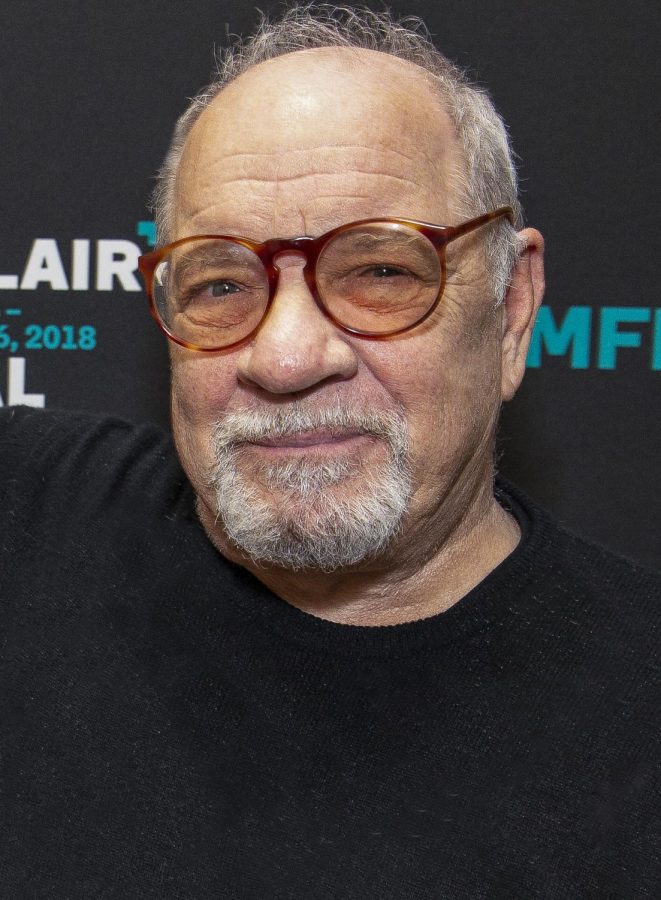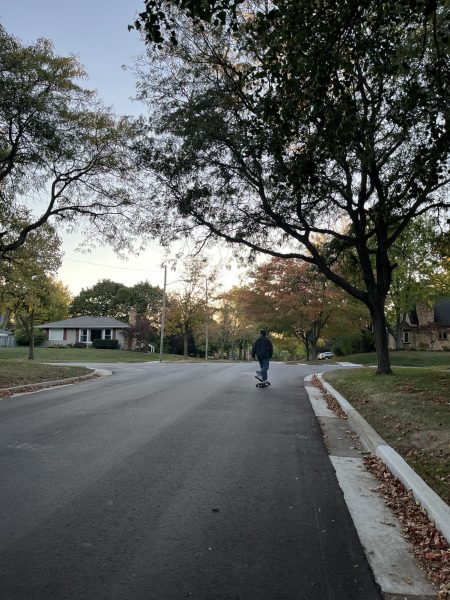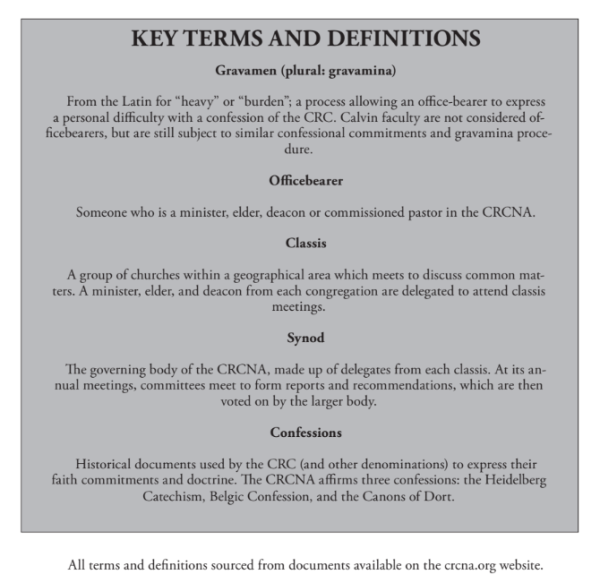On the Faith of Paul Schrader
Photo courtesy Wikimedia Commons user Bart Ryker
Paul Schrader at the Montclair Film Festival.
Just like that, all sound cut out; a black screen filled the frame. It wasn’t error in the theater projector, it was the ending to “First Reformed,” the latest film from controversial Calvin alum Paul Schrader, known as the author of Martin Scorsese’s “Taxi Driver,” listed by the American Film Institute as one of the 100 greatest American films.
It was my second time seeing it since Schrader came to premiere the film in Grand Rapids that February, but presumably the first time for everyone else that was there, including my housemate I was excitedly exposing to the dark, gut-wrenchingly challenging film.
As the credits rolled, we immediately began talking about the film’s style, the way it assaulted the viewer’s spiritual core in content and form alike. Around us, small groups of older Grand Rapidians of an assuredly Reformed descent were having similar discussions, trying to figure out what the whole thing meant. One of them approached my housemate and me.
“What did you think?” she asked.
I went into the nuances of Schrader’s appropriation of the techniques and calling-cards of Bergman and transcendental style. She stared at me like a deer in the headlights.
“So you just care about the production, then,” she told me, “you don’t know what it means.”
The form was the content, I was about to say. Another theater-goer joined us instead. An older man with that distinctly Reformed pastoral look came in to explain that it was really all about eschatology and the return of God’s Kingdom. The earth would perish due to climate change, it would seem, but if we try to do something about it without first acknowledging love, we’ve missed the gospel. The woman we’d been talking to found this quite unsatisfying.
“So we’re not supposed to do anything about our earth, then? Someone has to do something,” she proclaimed, mimicking, knowingly or not, the words of Ethan Hawke’s character in the film.
The old Reformed man assured her that somebody will, and that person is Jesus, not us. Again, she was unsatisfied. She rolled her eyes and stormed out of the theater.
“Have a nice life!” she yelled to us.
It seems appropriate that a Paul Schrader film should ignite such a heated discussion about eschatology in the middle of a theater after a movie. The Calvin attitude towards Schrader has had its ups and downs, to say the least. With films like “Taxi Driver,” “Hardcore,” and more recently, “First Reformed,” those unfamiliar with his personal history might be surprised to find he was raised in the Christian Reformed Church and attended Calvin. Here, he managed to create some trouble as a political and cultural radical in the 1960s, such as taking a trip with Chimes to a supposed journalism conference in Washington, D.C. only to protest the Vietnam War.
Surely, it seems that many in the Calvin community haven’t felt Schrader represents the best of what Calvin College has to offer the world as a Christian college.
“Funny how another alum was chastised for joining an administration and PS [Paul Schrader] (sic), is anything but representing the historic values of CC [Calvin College],” someone commented on the Chimes Facebook post of my article on Schrader’s recent Academy Award nomination.
Still, others, like many students in the film and media department, venerate him. “He’s one of the greatest screenwriters of our time,” said film and media senior Caleb Meyer. To many film students, Schrader is living, breathing proof that a renowned and artfully profound filmmaker can come out of a small, Christian liberal arts college in West Michigan.
Schrader’s place in the secular world as a controversial representative of Calvin, and one whom clearly inspires students with his achievements, thus subjects him to some scrutiny. The argument is over what that representation seems to be saying; and comments like those found on Facebook show how many seem to be sure for themselves where Schrader stands on faith.
If one were to watch his 1979 film “Hardcore,” about a conservative Reformed man played by George C. Scott searching for his runaway daughter who has supposedly gotten into the pornography industry in Los Angeles, one might think Schrader’s relationship to his Christian upbringing was strained to say the least.
A scene in that film shows Scott’s character describing the meaning of TULIP to his newfound porn-actress friend who’s helping him find his daughter. The depiction isn’t particularly flattering, as the film seems to imply that there is not much moral distinction between the “hardcore” faith of the main character and the hardcore pornographic lifestyle of the world he enters.
Not exactly the stuff you learn in religion class. It’s the kind of content that has led many to believe Schrader has renounced his faith for some time.
But what does Schrader himself have to say? It depends on when you would have asked him. In Kevin Jackson’s 1990 collection of interviews, “Schrader on Schrader,” it was clear that he had lost his faith, at least for a period of time, in his youth, saying as much directly. Perhaps this is a contributing factor to the notion that he continues to renounce Calvin and Christianity. However, as of most recent reports, this is not the case.
“I am a Christian,” he stated in a 2018 interview for “Now” magazine out of Toronto. “I go to church on Sundays; I’ve chosen to be a believer. I have been a believer most of my life and this is one of the things you deal with… I won’t attack those Christians who think that… Hillsong Arena is actually Christianity, but it’s not my Christianity.”
So why then all this speculation, this hearsay about what it is Schrader believes about God? “One time he came back to Calvin and gave a talk in the Fine Arts Center,” said professor Carl Plantinga of the film and media department, who personally knows Schrader. “20 years ago, I think… He said he believed in a being in which none greater could be conceived — the Wholly Other — but he was not sure what that being was,”
Perhaps incidents like this may have contributed to this hearsay, but Plantinga noted that “he may be less orthodox than many members of the Christian Reformed Church would prefer,” but “he has never… claimed to be an atheist.” Additionally, although he may be thought to be hostile towards Calvin, “the other thing is that he may have said some negative things about Calvin in the past, but he sent his own son to Calvin.” This is evidence enough for Plantinga that Schrader at the very least respects Calvin as an institution.
So, whatever one might say, or think, or hear about this supposedly enigmatic faith of Schrader’s, the real question becomes one of personal consequence. Given the often lurid or disturbing subject matter of his films, it may be easy for some to write Schrader off as an apostate, easier yet for others to deify him and claim he is simply misunderstood. The fact of the matter is that faith is tricky; it forms and cultivates over time.
Yet, we live in a time when people want simple answers. It makes it easier to know what to think of someone, whether to love them or hate them. Separating the orthodox from the heretics has been a nasty tendency Christianity has struggled for centuries to shake. Schrader, ever the rebel, would not have it so simply. Perhaps in being unable to pin down a meaning in another, one might be forced to search for it within themselves.













Jon Visser • Jun 19, 2023 at 12:13 am
I just rewatched 1979 Hardcore. George C Scott amazing actor. I found the TULIP scene very spot on to how CRC people think. Well I am going to Heaven of course I AM. I mock these people with I know where I am going do you. Interesting they so sure yet so unsympathetic to the people who will burn in Hell in there humble opinion. Alot feel they will go to Heaven because they go to church twice on Sunday they send there kids to Christian school and they hate movies and rock music on and on they go. They are simple silly people uncultured idiots who are very shallow but they are very sure if one thing. Where there going when they die.
Tom Snyder • May 15, 2020 at 8:47 pm
I found the movie rather silly. Apocalyptic climate change is not real science. It seems that Paul Schrader has exchanged the truth of the Gospel and the character of God for pseudo-science, vague unbiblical notions of spirituality, and godless leftist politics. One wonders what exactly the professors are teaching at Calvin. God’s love does not contradict God’s justice. It does not delight in evil.
Jim Hoekema • Mar 10, 2019 at 5:48 pm
Not sure why people get so concerned about what other people believe. (Well, OK, having grown up in this world, I know that thought-policing is a popular sport.) But I loved the account of the debate after the screening of “First Reformed” – I’m sure the variety of reactions will please the filmmaker very much.
David R Banta • Feb 27, 2019 at 5:58 am
Thank you for this informative article…have never read anything regarding Schrader’s faith….